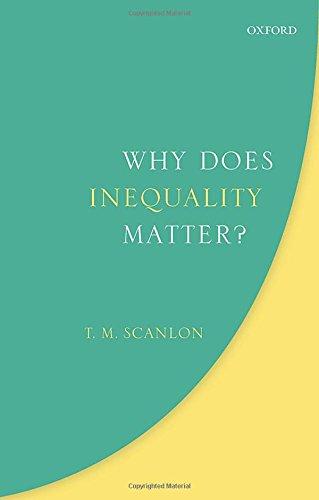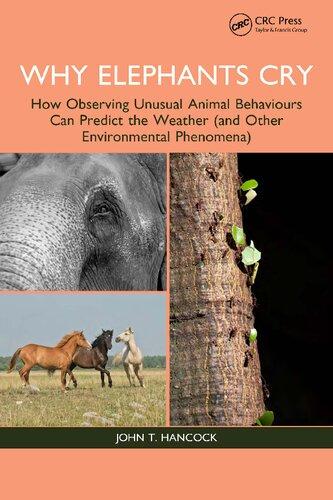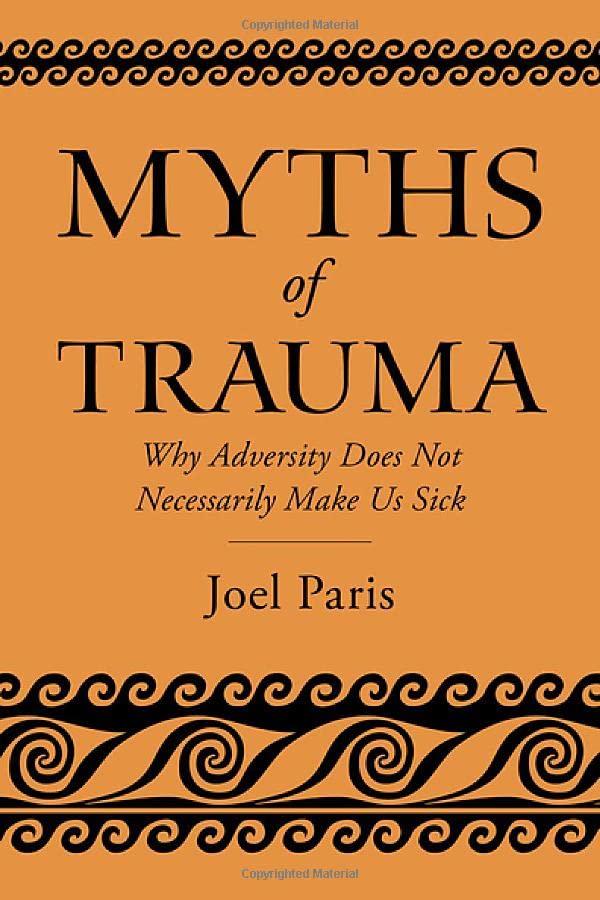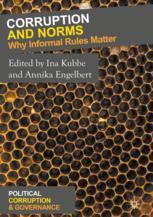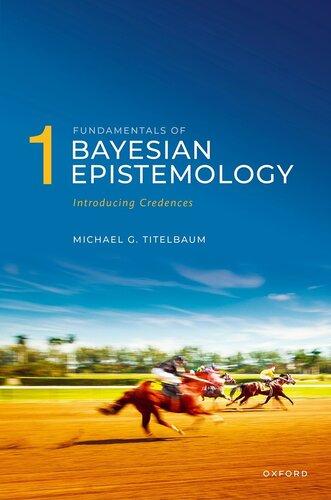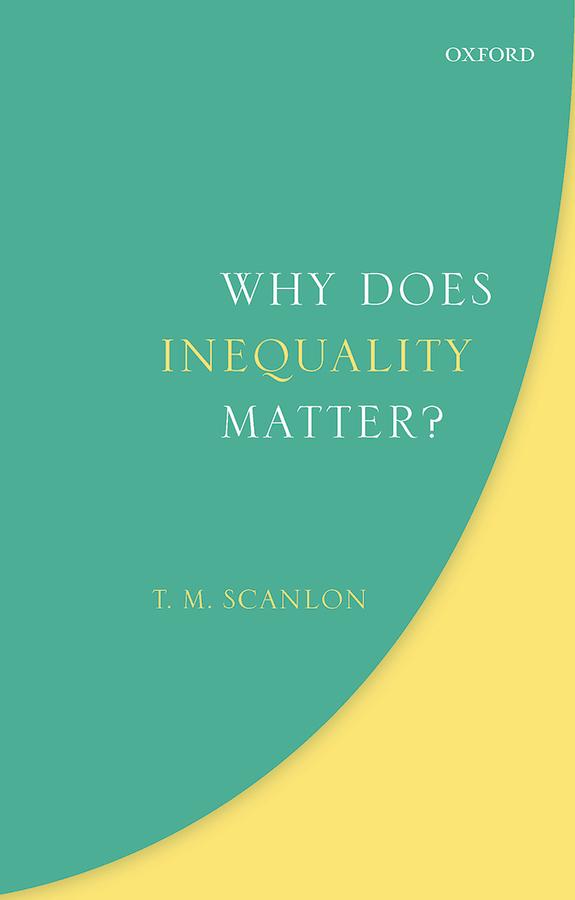WhyDoes InequalityMatter?
T.M.Scanlon
GreatClarendonStreet,Oxford,OX26DP, UnitedKingdom
OxfordUniversityPressisadepartmentoftheUniversityofOxford. ItfurtherstheUniversity’sobjectiveofexcellenceinresearch,scholarship, andeducationbypublishingworldwide.Oxfordisaregisteredtrademarkof OxfordUniversityPressintheUKandincertainothercountries
©T.M.Scanlon2018
Themoralrightsoftheauthorhavebeenasserted
FirstEditionpublishedin2018
Impression:1
Allrightsreserved.Nopartofthispublicationmaybereproduced,storedin aretrievalsystem,ortransmitted,inanyformorbyanymeans,withoutthe priorpermissioninwritingofOxfordUniversityPress,orasexpresslypermitted bylaw,bylicenceorundertermsagreedwiththeappropriatereprographics rightsorganization.Enquiriesconcerningreproductionoutsidethescopeofthe aboveshouldbesenttotheRightsDepartment,OxfordUniversityPress,atthe addressabove
Youmustnotcirculatethisworkinanyotherform andyoumustimposethissameconditiononanyacquirer
PublishedintheUnitedStatesofAmericabyOxfordUniversityPress 198MadisonAvenue,NewYork,NY10016,UnitedStatesofAmerica
BritishLibraryCataloguinginPublicationData
Dataavailable
LibraryofCongressControlNumber:2017943303
ISBN978–0–19–881269–2
PrintedinGreatBritainby ClaysLtd,StIvesplc
LinkstothirdpartywebsitesareprovidedbyOxfordingoodfaithand forinformationonly.Oxforddisclaimsanyresponsibilityforthematerials containedinanythirdpartywebsitereferencedinthiswork.
ForJessieandSarah
Preface
ThisbookisarevisedandextendedversionofmyUehiroLectures,given inOxfordinDecember2013.IamgratefultoJulianSavulescuandthe UehiroFoundationfortheinvitationtogivethoselectures,andgrateful toJohnBroome,DavidMiller,andJanetRadcliffeRichards,mycommentatorsonthatoccasion,fortheirthoughtfulremarks.
Theideaspresentedheregobacktomy1996LindleyLecture, “The DiversityofObjectionstoInequality. ” Thatlecturedevelopedintoa papercalled “WhenDoesEqualityMatter?” ever-longerversionsof whichwerepresentedtomoreaudiencesthanIcanlist.Ibene fitted greatlyfromthemanycommentsandsuggestionsthatIreceivedonallof thoseoccasions.TheinvitationtogivetheUehiroLecturesprovideda verywelcomestimulustoextendthatunfinishedpaperintothreelectures,whichnowhavegrowntotenchapters.
Manypeoplehavegivenmevaluablehelpatvariousstagesofthis processofdevelopment.CharlesBeitz,JoshuaCohen,JosephFishkin, SamuelFreeman,NikoKolodny,MartinO’Neill,JosephRaz,Amartya Sen,TommieShelby,DennisThompson,ManuelVargas,andPaul Weithmangavemehelpfulcommentsondraftchapters,andinsome casesevenonfulldraftsofthebook.Ialsoreceivedincisiveandinstructivecommentsfromtheparticipantsinmypoliticalphilosophyseminar inthespringtermof2016,includingespeciallyFrancesKammandJed Lewinsohn.Myheartfeltthankstoallofthesepeople.Itiswonderfulto havesuchgenerousandhelpfulfriendsandcolleagues.Ialsothank RicharddeFilippifordiscussionofinequalityinaccesstohealthcare andinhealthoutcomes,andNoelDominguezforresearchassistance.
Asalways,Iamgratefultomywife,Lucy,forhersupport,andfor respondingthoughtfullyandpatientlytomyrepeatedattempts,over dinnersandbreakfasts,toexplainwhyIwas findinginequalitysucha difficulttopictowriteabout.
1 Introduction
TheextremelyhighlevelsofinequalitynowprevailingintheUnitedStates andintheworldasawholeareopentoseriousmoralobjection.Butitis notclearexactlywhythisisso notclearwhatthemoralreasonsarefor objectingtoinequalityandforreducingoreliminatingitifpossible. Gainingabetterunderstandingofthesereasonsistheaimofthisbook.
Onereasonforwantingtoredistributeresourcesfromtherichtothe poorissimplythatthisisawayofmakingthepoorbetteroff,at comparativelysmallcosttothewelfareoftherich.Thiscanbeastrong reasonforsupportingredistributivepolicies,butitisnot,atbase,an objectionto inequality,thatistosay,anobjectiontothedifference betweenthewell-beingofsomeandthatofothers.Itissimplyareason, perhapsverypowerful,forincreasingthewell-beingofthepoor.Thefact thatsomepeoplearemuchbetteroffthanthepoorisrelevanttothis rationaleforredistributiononlybecause,asWillieSutton,afamous Americanbankrobber,issaidtohaveremarkedwhenaskedwhyhe robbedbanks: “That’swherethemoneyis.”
Egalitarianreasons,bycontrast,arereasonsforobjectingtothe differencebetweenwhatsomehaveandwhatothershave,andfor reducingthisdifference.Inwhatfollows,Iwillbeparticularlyconcerned withreasonsofthiskind,notbecausetheyaremoreimportantthan reasonsforimprovingthelotofthosewhoareworseoff oftentheyare notmoreimportant butbecausetheyaremorepuzzling.
Concernwithequalitycanseemdifficulttojustify.RobertNozick,for example,famouslychargedthataconcernwithequalityisaconcernwith aparticularpatternofdistribution,whichcanbemaintainedonlyby interferingwiththelibertyofindividualstomakechoices,takerisks,and enterintocontractsthatwouldupsetthatpattern.1 Why,heasked,
1 Anarchy,State,andUtopia,160–4.(Workswillbecitedinfootnotesonlybytitle.Full publicationinformationcanbefoundinthebibliography.)
shouldwetrytomaintainanarbitrarypatternofdistributionatthecost ofconstantinterferencewithindividualliberty?
Whentheideathatthereisaconflictbetweenequalityandlibertyis putinthisabstractway,equalityseemsimmediatelyatadisadvantage. Interferencewithlibertyissomethingpeoplehaveobviousreasonto objectto:noonewantstobedeprivedofoptionsthatheorshevalues,or tobetoldwhattodobyothers.Butitislessclearwhatreasonsthereare forobjectingtoinequality.Peoplehavegoodreasontowishthattheir ownliveswerebetter.Butwhatreasondotheyhavetobeconcernedwith thedifferencebetweentheirlivesandthelivesofothers?Ithasthusoften beenchargedthatdemandsforgreaterequalityarejustexpressionsof envythatthe “havenots” feeltowardthe “haves.”
Reasonscanbeegalitarian concernedwithequalityandinequality ineitherabroaderoranarrowersense.Reasonsareegalitarianinthe broadersenseaslongastheyarereasonsforobjectingtothedifference betweenwhatsomehaveandwhatothershave.Thisincludesreasons thatarebasedontheconsequencesofthisdifference,evenwhenthe reasonsforobjectingtotheseconsequenceshavenothingtodowith equality.Thereis,forexample,considerableempiricalevidencethat inequalityhasveryseriouseffectsonthehealthofthosewhohave less.
2 Thisprovidesstronginstrumentalreasonsforreducinginequality thatareegalitarianinthebroad,butnotthenarrowsense,sincereasons forconcernwithill-healtharenotthemselvesegalitarian.Reasonsare egalitarianinthenarrowersenseiftheyaregrounded,ultimately,in someideaofwhyequalityitselfistobesought,orwhyinequalityitselfis objectionable.Onepossiblereasonforobjectingtoeconomicinequality isthatitcangivethosewhohavemoreanunacceptabledegreeofcontrol overthelivesofthosewhohaveless.Ifthereasonfor findingthiscontrol unacceptableistheunequalrelationshipbetweenthedominatedand thosedominatingthem,thenthisobjectionisegalitarianinthenarrowas wellasthebroadersense.If,ontheotherhand,theobjectiontobeing controlledisjustthelossofopportunitiesthatitinvolves,thenthe objectionisegalitarianonlyinthebroadersense.
2 SeeMichaelMarmot, StatusSyndrome:HowyourSocialStandingDirectlyAffectsYour Health,andRichardWilkinsonandKatePickett, TheSpiritLevel:WhyMoreEqualSocieties AlmostAlwaysDoBetter. Fordiscussion,seeMartinO’Neill, “TheFactsofInequality.”
Nozick’scharge,thataconcernwithequalityisaconcerntopreservea certainpatternofdistribution,isframedasachallengeprimarilyto reasonsthatareegalitarianinthenarrowersense.Buttheenvyobjection questionswhetherthereareanygoodreasons atall forobjectingto inequality,whetherthesereasonsarenarrowlyegalitarianornot.
Insofarasareasonforreducinginequalityisevenbroadlyegalitarian insofarasitisareasonforobjectingtothe difference betweenwhatsome haveandwhatothershave itmightseemtocountinfavorofreducing thatdifferenceevenifthismadenoonebetteroff,andleftatleastsome people(therich)worseoff.Theapparentirrationalityofsuchamoveisthe basisofwhathasbeencalledthe “levelingdownobjection.” Thisobjection hasbeenofferedasareasonforrejectingegalitarianisminfavorof prioritarianism,theviewthatweshouldbeconcernedsimplywith improvingtheconditionoftheworseoffratherthanwiththedifference betweenrichandpoor.3
Toassessthesechallengesweneedaclearaccountofthereasonsfor caringaboutequalityandinequality.Wealsoneedsuchanaccountin ordertounderstandwhatiswrongwithlawsandinstitutionsthat promoteinequality,andhowchangingtheseinstitutionstobringabout greaterequalitycanbejustified.Evenifitwouldbeaverygoodthingif thepoorwerebetteroff,oragoodthingifthedifferencebetweenthe poorandtherichwerereduced,itmightstillbethecasethatachieving theseaimsbyredistributionwouldbewrong.WillieSuttonwas,afterall, arobber,andthesamecouldbesaidforRobinHood,eventhoughhis motiveswerebetter.
Ibelievethattherearereasonsforobjectingtoinequalitythatmeet thesechallenges indeed,thatthereareanumberofdiversereasons.The taskofthisbookistoinvestigatethenatureofthesereasons.Idescribe thistaskasinvestigatingtheobjectionstoinequalityratherthanthecase
3 SeeDerekParfit, “EqualityorPriority?” andHarryFrankfurt, “EqualityasaMoral Ideal,” and OnInequality.Fordiscussionoftheissue,seeMartinO’Neill, “WhatShould EgalitariansBelieve.” Frankfurt’scentralthesisisthatweshouldbeconcernedwith “sufficiency”—whethereveryonehas enough foragoodlife ratherthanwithequality thedifferencebetweenwhatsomehaveandwhatothershave(OnInequality,7etpassim). Heacknowledges,however,thattherecanbegood “derivative” reasonsforobjectingto inequalitythatarenotbasedonthemoralvalueofequality(OnInequality,9,16–17).He goesontomentionmanyofthereasonsforobjectingtoinequalitythatIwilldiscusslaterin thisbook.SoItakeitthatFrankfurtisobjectingonlytoreasonsthatareegalitarianinthe narrowersensethatIdistinguished.
forequalitybecausethiswayofputtingitincludes,potentially,awider rangeofconsiderations,notallofwhichareegalitarianinthenarrower sense.Aswewillsee,someofthemostpowerfulobjectionstoinequality havetodowithitsconsequences,andnotalloftheseobjectionsarebased inthevalueofequality.
Recognizingthediversityofthereasonsforobjectingtoinequalityis importantalsobecauseithelpsustounderstandthedifferencesbetween thekindsofinequalitythatweface.Theinequalitybetweenthe1percent andtherestofusisonething;theinequalitybetweenthecomfortably well-offandtheverypoorissomethingelse.Racialinequality,andthe variousformsofinequalitybetweenmenandwomen,areyetdifferent problems,asisinequalitybetweenpeopleindifferentcountries.These differentformsofinequalityaresubjecttodifferentcombinationsof moralobjectionsofthekindsIwilldescribe.
OneimportantideaofequalitythatIwillpresupposebutnotarguefor iswhatmightbecalledbasicmoralequality theideathateveryone countsmorally,regardlessofdifferencessuchastheirrace,theirgender, andwheretheylive.Theincreasedacceptanceoftheideaofbasicmoral equality,andtheexpansionoftherangeofpeopleitisacknowledgedto cover,hasbeenperhapsthemostimportantformofmoralprogressover thecenturies.
Basicmoralequalityisnowwidelyaccepted,evenamongpeoplewho rejectmoresubstantiveegalitarianclaims.Nozick,forexample,accepts basicmoralequality.Whenhewrites, “Individualshaverights,” he means all individuals.4 Buthedeniesthatweoweittopeople,morally speaking,tomaketheirconditionequaltothatofothersinwealth, income,oranyotherparticularrespect.Itissubstantiveequalityofthe latterkindsthatIwillbeconcernedwithinthisbook.Myquestionis: whenandwhyisitmorallyobjectionablethatsomepeopleareworseoff insomewaythanothersare?IntheremainderofthischapterIwill identifyseveralkindsofreasonsforobjectingtoinequality,manyof whichwillbeexaminedinmoredetailinlaterchapters.
Status:Castesystemsandothersocialarrangementsthatinvolve stigmatizingdifferencesinstatusareleadinghistoricalexamplesof objectionableinequality.Inthesesystems,membersofsomegroupsare
regardedasinferior.Theyareexcludedfromsocialrolesandoccupations thatareseenasmostdesirable,orevenrelegatedtooccupationsthatare regardedasdemeaningandbeneaththedignityofmembersofother groups.Theevilinvolvedinsucharrangementshasacomparative character:whatisobjectionableisbeingtreatedas inferiortoothers in ademeaningway.Therootideaoftheobjectiontothisisthusan egalitarianone.
InthehistoricalcasesofthekindIhavementioned,inequalitiesbased oncaste,race,orgenderwereamatteroflaworofentrenchedsocial customsandattitudes.Insomecasestheseattitudesinvolvedwidely sharedbeliefsthatmembersofsomeracesdonothavefullmoralstatus, perhapseventhattheyare “notfullyhuman,” thusdenyingwhatIjust calledbasicmoralequality.Butsuchbeliefsarenotessentialtothe objectionIamconcernedwith.Theclasssysteminnineteenth-century Britaindidnot,Iassume,involvetheideathatmembersofthelower classeswerenotfullyhuman,orthatwhathappenedtothemdidnot mattermorally,butonlythattheywerenotsuitedfor,orentitledto, certainsocialandpoliticalroles.
EconomicinequalitycanalsobeobjectionableforthereasonIamnow discussing,becauseextremeinequalityinincomeandwealthcanmean thatthepoormustliveinawaythatisreasonablyseenashumiliating.As AdamSmithobserved,itisaseriousobjectiontoasocietyifsomepeople aresomuchpoorerthanothersthattheyhavetoliveanddressinsucha waythattheycannotgooutinpublicwithoutshame. 5 Theevilhereis, again,comparative itisnotmerelyhavingraggedclothes,orpoor housing,butofhavingtoliveandtopresentoneselfinawaythatisso farbelowthestandardgenerallyacceptedinthesocietythatitmarksone asinferior.Asthisreferenceto “standardsgenerallyaccepted ” indicates, economicinequalitieshavetheseeffectsonlygivencertainprevailing attitudesaboutwhatitnecessaryinorderforsomeonetobesocially acceptable.Sowhatisobjectionableisacertaincombinationofeconomic inequalityandsocialnorms.Iwilldiscussthiskindofinequalityfurther inChapter3.
Control:Inequalitiescanalsobeobjectionablebecausetheygivesome peopleanunacceptabledegreeofcontroloverthelivesofothers.If,for
5 AnInquiryintotheNatureandCausesoftheWealthofNations,351–2.Citedby AmartyaSenin InequalityReexamined,115.
example,asmallnumberofpeoplecontrolalmostallofthewealthina society,thiscangivethemanunacceptabledegreeofcontroloverwhere andhowotherscanwork,whatisavailableforthemtobuy,andin generalwhattheirliveswillbelike.Morenarrowly,ownershipof importantpublicmediainacountrycangivesomeanobjectionable degreeofcontroloverhowothersinthesocietyviewthemselvesand theirlives,andhowtheyunderstandtheirsociety.IwilldiscussobjectionstothesetwoformsofcontrolinChapters6,7,and9.6
EqualityofOpportunity:Whenthereisgreatinequalityinfamily incomeandwealth,individuals’ prospectsofsuccessinacompetitive marketaregreatlyaffectedbythefamiliesintowhichtheyareborn.This canmakeitdifficultorimpossibletoachieveequalityofeconomic opportunity.Thisiswidelyrecognizedasaseriousproblem,although thecaseforequalityofopportunityisnotmuchdiscussed.Iwillexamine thatcase,anditsimplicationsforinequality,inChapters4and5.
PoliticalFairness:Greatinequalitiesinwealthandincomecanalso underminethefairnessofpoliticalinstitutions.Thewealthymaybe muchmoreablethanotherstoinfluencethecourseofpoliticaldiscussion,moreabletogainpoliticalofficethemselves,andmoreableto influenceotherswhoholdoffice.Thiscanbeseenasaspecialcaseof theproblemofcontrol:manipulationofthepoliticalsystemisonewayof turningeconomicadvantageintocontrol.Butunderminingthefairness ofthepoliticalsystemismorallysignificantinotherways,forexample, becauseitaffectsthelegitimacyoflawsandpolicies.Iwilldiscussthis objectiontoinequality,andthedegreetowhichitisamatterofunequal influence,orunequalopportunitytoinfluence,inChapter6.
ObjectionsofthefourkindsthatIhavelistedmakeitclearhowsome objectionstoeconomicinequalityarenotmereexpressionsofenvy.They alsomakeclearthatwhattheseobjectionscallforisnotpointlessleveling down.Peoplehavegoodreasontoobjecttostigmatizingdifferencesin status,toobjectionableformsofcontrol,andtosocialinstitutionsthat
6 Marmotandothersarguethattheeffectsofinequalityonhealthseemmainlytobe broughtaboutthroughthetwoeffectsofinequalitythatIhavejustlisted:theexperienceof havinglowsocialstatusandofbeingunderthecontrolofothers,particularlyinthe workplace.SeeMichaelMarmotetal., “EmploymentGradeandCoronaryHeartDisease inBritishCivilServants,” andotherworksIcitedinn.2.ThisisquestionedbyAngus Deaton, “WhatdoestheEmpiricalEvidenceTellusabouttheInjusticeofHealthInequalities?”,270–2.
areunfair,evenifeliminatingthesethingswouldnotincreasetheir welfare.Fairpoliticalinstitutionsandequaleconomicopportunitymay leadtothepoorbeingbetteroff.Butthisisnottheonlyreasonfor wantinginstitutionsthatarefair.Thepoorhavereasontowantequality ofopportunity towanttobetreatedfairly evenifitdoesnotinthe endleadtotheirbeingbetteroff.(Itisafurtherquestionwhetherthe poorwouldhave sufficient reasontowantequalityofopportunityifthis meantthattheywouldbelesswelloffeconomically.)
EqualConcern :Someotherobjectionstoinequalityarenot,likethe onesIhavejustlisted,basedonitseffects,butratheronthewaysin whichthisinequalityarises.Objectionsbasedontheideaofequal concernareofthiskind.Theseobjectionsapplywhenaninstitutionor agentowessomebenefittoeverymemberofacertaingroupbutprovides thisbenefitonlytosome,ormorefullytosomethantoothers.
Suppose,forexample,thatamunicipalityisobligatedtoprovide pavedstreetsandsanitationtoallresidents.Itwouldthenbeobjectionable,absentsomespecialjustification,toprovidetheseservicesata higherleveltosomethantoothers.Forexample,itwouldbeobjectionableforthetowntorepavethestreetsmorefrequentlyinrichneighborhoodsthanpoorones,ormorefrequentlyintheareaswherefriendsof themayorormembersofacertainreligiousgrouplive.Thisrequirement ofequalconcernisnotviolatedeverytimethemunicipalgovernment spendsmoremoneytoprovideacertainserviceforsomethanitdoesfor others.If,forexample,geologicalfactorsmadeitmoredifficultto maintainpassableroadsinsomeareasthaninothers,spendingmore tomaintainroadsintheseareaswouldnotbeobjectionableinthisway, becausethejustificationfordoingthisdoesnotrequiregivingthe interestsofresidentsofthisareagreaterweightthanthecomparable interestsofresidentsofotherareas.7 Iwilldiscussthisrequirementin Chapter3,consideringhowitshouldbeunderstoodandinwhatsenseit isbasedonanideaofequality.
FairDistributionofIncome: In1965theaveragecompensationof executivesinthe350largest firmsintheU.S.wastwentytimesthe averagecompensationofworkersinthose firms.Inthelastdecadesof thetwentiethcentury,thisratiogrewrapidly,andreachedahighof376
7 Icallthisarequirementofequalconcernratherthanequaltreatmentbecauseitapplies nottothebenefitsprovidedbuttothewayinwhichthesebenefitscanbejustified.
to1in2000.In2014itwasstill303to1, “higherthanithadbeenatany timeduringthe1960s,1970s,1980sor1990s.”8 Inaddition, “From1978 to2014,inflationadjustedcompensation[oftheseexecutives]increased 997percent,arisealmostdoublestockmarketgrowthandsubstantially greaterthanthepainfullyslow10.5percentgrowthinatypicalworker’ s annualcompensationoverthesameperiod.”9
Thisinequalityseemsclearlyobjectionable.Whatisobjectionable aboutitisnotthatitrepresentsafailureofequalconcern.Thebene fits inquestionarenotonesthatsomeagentisobligatedtoprovideandis providingunequally.Rather,thebene fitsareonesthatindividualsobtain byparticipatingintheeconomyinonewayoranother.Theobjection mightbeputbysayingthatthese figuresindicatethattheeconomic institutionsthatgiverisetothisinequalityareunfair.Onewayinwhich suchinstitutionscouldbeunfairwouldbealackofequalityofopportunity,whichIhavealreadymentionedandwilldiscussmorefullyin Chapters4and5.Thepresentobjectionisdifferent,however.Whatis heldtobeunfairisthewayinwhichunequalrewardsareassignedto certaineconomicrolesorpositionsratherthanthelackofopportunity thatindividualshavetocompeteforthosepositions.Thisraisesthe questionofwhatfairnessofthiskindrequires.Iwilldiscussthisquestion inChapter9.
Tosummarizethediscussionsofar:Ihaveidentifiedsixkindsof reasonsforobjectingtovariousformsofinequalityandforseekingto eliminateorreducethem:
(1)Inequalitycanbeobjectionablebecauseitcreateshumiliating differencesinstatus.
(2)Inequalitycanbeobjectionablebecauseitgivestherichunacceptableformsofpoweroverthosewhohaveless.
(3)Inequalitycanbeobjectionablebecauseitunderminesequalityof economicopportunity.
(4)Inequalitycanbeobjectionablebecauseitunderminesthefairness ofpoliticalinstitutions.
8 LawrenceMishelandAlyssaDavis, “TopCEOsMake300TimesMorethanTypical Workers,” 2.
9 MishelandDavis, “TopCEOs,” 1–2.
(5)Inequalitycanbeobjectionablebecauseitresultsfromviolationof arequirementofequalconcernfortheinterestsofthosetowhom thegovernmentisobligatedtoprovidesomebenefit.
(6)Inequalityofincomeandwealthcanbeobjectionablebecauseit arisesfromeconomicinstitutionsthatareunfair.
Incontrasttoluckegalitarianviews,whichtake(non-voluntary) inequalitytobebadwhereveritoccurs,10 theobjectionstoinequality thatIhavelistedallpresupposesomeformofrelationshiporinteraction betweentheunequalparties.Objectionableinequalitiesinstatuspresupposesomerelationshipthatmakesfeelingsofhumiliationordiminished self-esteemreasonable.Suchobjectionsthusdonotapplytopeoplewho havenointeractionwithoneanother.Objectionsbasedoncontrolapply onlywhereinequalitiesinvolveorleadtosomeformofcontrol.Objectionsbasedonfailuresofequalconcernpresupposesomeagentor agencythatisobligatedtoprovidebenefitsofthekindinquestion,and objectionsbasedoninterferencewitheconomicopportunity,interferencewithpoliticalequality,orunfairdistributionofincomeallpresupposethatthepartiesparticipateinoraresubjecttosomeinstitutionto whichrequirementsoffairnessapply.Onceinequalityisconsidered separatelyfromallsuchrelationalandinstitutionalfactors,itisnot clearthatitisobjectionable.11
Thefactthatmanyofthesereasonsforobjectingtoinequalityapply onlywherethereareinstitutionswithcertainobligations,orinstitutions towhichcertainrequirementsofjusticeapply,mayleadreadersto identifymypositionwithwhatThomasNagelcalls “thepoliticalconceptionofjustice,” whichholdsthatjusticeappliesonlywithinthe boundariesofanationstate.12 Butmyclaimsdifferfromthisconception inimportantrespects.Notallofthereasonsforobjectingtoinequality
10 Seee.g.G.A.Cohen, “OntheCurrencyofEgalitarianJustice,” andRichardArneson, “EqualityandEqualOpportunityforWelfare.” ThisisaninstanceofwhatParfit,in “EqualityorPriority?,” callsTelicEgalitarianism.Theterm “luckegalitarianism” wascoined byElizabethAnderson,acriticoftheview,in “WhatisthePointofEquality?” Theviewof equalitythatAndersonfavorsis,likemine,relational(seeherp.313etpassim).Forcritical discussion,seeSamuelScheffler, “WhatisEgalitarianism?”
11 Inparticular,G.A.Cohen’sobjectionstoinequalityin WhyNotSocialism? depend heavilyontheparticularpersonalrelationshipsinvolvedinhiscampingtripexample.
12 “TheProblemofGlobalJustice.” ForcriticaldiscussionofthisconceptionseeJoshua CohenandCharlesSabel, “ExtraRempublicamNullaJustitia?,” andA.J.Julius, “Nagel’ s Atlas.”
thatIdescribepresupposesharedinstitutions,andwhereinstitutionsare involved,theseinstitutionsneednotbecoextensivewithorenforcedbya state.EconomicinstitutionsofthekindIdiscussinChapter8,for example,arenotlimitedbynationalborders.
Theremaybeotherreasonsforfavoringequality,orforobjectingto inequality,thatIhavenotlisted.IwillfocusontheobjectionsIhave listedbecausetheyseemtomeimportant,butespeciallybecausethere areinterestingnormativequestionsaboutthevaluesthatunderliethem. Notallobjectionstoinequalityraisesuchquestions.Forexample,as Imentionedearlier,inequalitymaybeobjectionablebecauseitcausesillhealth.13 Itmightalsobearguedthatgreaterequalityisdesirablebecause inequalityleadstosocialinstability,orbecauseequalitycontributesto economicefficiencybyfosteringagreatersenseofsolidarityandwillingnesstoworkhardforthecommongood.Iftheempiricalassumptions underlyingsuchclaimsarecorrect,thenthesearegoodreasonsfor regardinginequalityasabadthing.Iamnotdiscussingthesereasons, however,becausethereseemstomenothingpuzzlingaboutthevalues thattheyappealto.Thereisnoquestion,forexample,aboutwhetherillhealthisbad.Sothequestionsofwhethertheseobjectionsapplyare purelyempirical.
Itmaybemaintained,ofcourse,thatthegreatinequalityincurrent societiesisnotobjectionableatall,becauseitarisesfromthelegitimate exerciseofindividualliberties,andthatmeasuresintendedtoreducethis inequalitywouldbeobjectionableinterferenceswiththeseliberties.In Chapter7,Iwilldiscussthisobjectionandexaminetheideasoflibertyon whichitmaybebased.Anotherpossiblejustificationforeconomic inequalityisthattheindividualswhohavemoredeservetheirgreater rewards.IwillexaminetheideaofdesertinChapter8,andconsider whetheritcanbeappealedtoasajustificationforeconomicinequalityor perhapsasanobjectiontoit.
InChapter9,Iwillexaminetheideaofunfairnessonwhichthelastof theobjectionsIhavementionedisbased,andconsiderhowthisobjection,andothersIhavediscussed,applytotherecentriseininequalityin theUnitedStatesandotherdevelopedcountries.Chapter10willbea summaryofthemainthemesofthebook.
EqualConcern
InChapter1,Ilistedviolationsofequalconcernasoneformof objectionableinequality.Asexamples,Imentionedcasesinwhicha municipalgovernmentprovidesamuchloweralevelofpublicservices, suchasroadpaving,sanitation,orpublictransportation,forsome citizensthanitprovidesforothers,whomaybefavoredbecauseof theirpoliticalorreligiousviews,forexample,orbecausetheyarefriends ofimportantpublicofficials.
Objectionstoinequalityofthiskindpresupposeanobligationonthe partofsomeagenttoprovidebenefitstoeveryoneinacertaingroup. (Exactlywhatkindofobligationispresupposedwillbeamatterfor furtherdiscussion.)Theseobjectionsthereforeapplyonlytoinequalities thatresultfromthefailureofthatagenttofulfillthisobligationtoall thosetowhomitisowed.
Consider,forexample,thefollowingfacts.IntheU.S.,lifeexpectancy formenis74.2years;inChina,itis70.4years;butinMalawi,itisonly 37.1years.Thisisappalling,andcriesoutforsomeaction.Thatistosay, thelastfact,aboutlifeexpectancyinMalawi,isappallingandcriesout foraction.Itisoftensuggestedthattheproblemisoneofinequality, sometimescalled “theinternationallifeexpectancygap.” Butalthough thesefactsareverytroubling,Iamnotconvincedthatinequalityiswhat isobjectionableinthiscase.
ItisaverybadthingthatlifeexpectancyinMalawiissolow.Butwhat istherelevanceofthefactthatlifeexpectancyismuchhigherinChina andintheUnitedStates?Thisdifferencemightberelevantsimply becauseitindicatesthathumanbeingsdonothavetodiesoyoung. Givenpresentlyavailabletechnology,humanscanlivemuchlonger,and dolivelongerundermorefavorableconditions.Soonereasonthatthe lowlifeexpectancyofmeninMalawiisappallingisthatitisavoidable. Butreferringtothissituationas “theinternationallifeexpectancygap”
suggeststhatthegreat difference inlifeexpectancybetweenthethree countriesitselfhasfundamentalmoralsignificance,anditisnotclearto methatithasthissignificance.Itseemstomethatwhatmattersisjust thelowlifeexpectancyinMalawi,notthedifferencebetweenitandlife expectancyinothercountries.
Considerbycontrastthesefactsaboutregionalandracialdisparityin lifeexpectancyintheUnitedStates.Inthe10percentofcountiesinthe U.S.withgreatestlifeexpectancy77percentofwhitemenlivetoage70, whileonly68percentofblackmenborninthosecountieslivetothatage. Inthe10percentofcountieswithlowestlifeexpectancythingsareeven worse.61percentofwhitemenborninthosecountieslivetoage70but only45percentofblackmen.1 Accordingtoa2013reportoftheCenter forDiseaseControlandPrevention,therewere1.2casesoftuberculosis per100,000amongwhitesintheU.S.but10.2casesper100,000among blacks.Andtheinfantmortalityratewas5.8percentamongwhitesbut 13.7percentamongblacks.2 These figuresmaybedueinparttopoverty, buttheyalsoraisequestionsofequality specificallyquestionsofequal concern insofarasthedifferencesareduetothefactthatpublic institutionsfulfilltheobligationofprovidingmedicalcareandother conditionsofpublichealthmorefullywithrespecttowhites,andto peoplelivingincertainareas,thanwithrespecttoblacks,andtopeopleliving inotherareas.Amoregeneralattitudeofracialdiscriminationplaysan importantroleinexplainingthisdisparityinmedicaltreatment,justas unequaltreatmentintheothercasesImentionedmaybeexplainedby particularformsoffavoritism.Butunequalconcernofthekindthatthe caseshaveincommonismorallyobjectionablehoweveritmaybeexplained. Tosaythatwhatisobjectionableaboutinternationaldifferencesinlife expectancyisnottheinequalityinvolved(oratleastthatthisinequalityis notobjectionableforthesamekindofreasonasracialdisparityinlife expectancywithintheUnitedStates)isnottosaythattheseinternational differencesmaynotraisequestionsofjustice.Iflowlifeexpectancyin Malawi,say,wereduetopovertythatresultedfromthetheftofnatural resourcesbycolonialpowers,thenitwouldbetheresultofinjustice,not
1 MarkR.Cullen,ClintCummins,andVictorR.Fuchs, “GeographicandRacial VariationinPrematureMortalityintheU.S.:AnalyzingtheDisparities.” The figures citedarefrom1999–2001mortalityrates.
2 CDC, HealthDisparitiesandInequalitiesReport UnitedStates,2013.
simplyanunfortunatesituation,liketheresultsofadroughtortsunami, thatothershavehumanitarianreasonstohelpalleviate.Buttheunderlyingobjectionwouldstillnotbeamatterofinequality.IfIhaveless moneythanyoudobecausehackersstolethemoneyinmybankaccount, thisiswrong,butnotbecauseoftheinequalityinvolved.Ifthepovertythat leadstolowlifeexpectancyinthirdworldcountriesisduenotonlytopast colonialpracticesbuttopresentunjustinstitutionsofinternationaltrade, ideasofequalitymayhavearoleinexplainingwhytheseinstitutionsare unjust.Butthisisnotthequestionofequalitythatseemstobeimplicated bythefactsaboutlifeexpectancythemselves.Mypointisthatthefacts aboutracialdisparityinlifeexpectancyintheUnitedStatesraiseadistinct questionofequalitythatdoesnotseemtobeinvolvedintheinternational case,whichraisesseriousmoralquestionsofadifferentsort.
WhatisobjectionableaboutinternationaldifferencesinlifeexpectancywouldnotbemadelessseriousiflifeexpectancyintheU.S.wereto bereducedbytheoccurrenceofsomenewdisease,therebyreducingthe inequalityinvolved.Butthisfactdoesnotshowthattheobjectionto internationaldifferencesinlifeexpectancyisnotbasedontheinequality involved.TheracialdisparityinhealthconditionsintheU.S.wouldalso notbemadelessobjectionableiflifeexpectancyforwhitemalesinthe U.S.weretodecreaseforsuchareason.Thisisbecausewhatisobjectionableaboutthisdisparityisnotthebarefactofinequalitybutthefactor thatcausesit,namelyaviolationofarequirementofequalconcern.
Thisillustratesageneralpointabouttherelationalviewofequality andinequalitythatIamdefending,whichIdescribedinChapter1.The barefactofinequalityinlifeexpectancyisnotwhatisobjectionablein eithertheinternationalorthedomesticcase.Whatisobjectionablein bothcasesis,mostbasically,thatsomepeople’slivesaremuchshorter thantheycouldbe,givenexistingknowledgeandtechnology.Inequality isrelevantonlyinsofarasit figuresinwhatisobjectionableaboutthe institutionsorotherfactorsthatproducethesedifferences.Thedifferencebetweentheinternationalandthedomesticcasesisthatinthe domesticcase,butnottheinternationalcase,thedifferenceinlife expectancyisduethefailureofimportantinstitutionstomeetarequirementofequalconcern.3 Ifthisobjectionableinequalityweretobe
3 Arequirementofequalconcerncanbeunderstoodtomeananumberofdifferent things.RonaldDworkin,forexample,understandsitastherequirementthata
reduced,then one objectiontothepresentsituationwouldalsobe lessened,evenifthisinvolvedreducingthelevelofmedicalcareavailable towhitesanddidnotimprovethelifeexpectancyofblacks.4 Whether thiswouldbejustifiableoverallisafurtherquestion.
Theaimofthischapteristoexaminethisrequirementofequal concerninmoredetail,andinparticulartounderstandtheideaof equalitythatitinvolves.Iftheobligationthataninstitutionhastoward itscitizensisjusttotreattheminacertainway forexample,notto violatetheirNozickeanrights thenevenifthisobligationisowedtoall citizensequally,theideaofequalitywouldhavenoroleinexplainingthe wronginvolvedwhenthisobligationisfulfilledforsomebutnotfor others.Thewaysomepeoplearetreatedinsuchacaseiswrongbecause itviolatestheirrights,andthiswouldbewronginthesamewaywhether therightsofotherswerebeingviolatedornot.Thecitizenshave “equal rights” (thatistosay,the same rights).Buttheideaofequalityplaysno roleinexplainingwhyviolationsoftheserightsarewrongful.
Somehaveclaimedthattheideaofequality,oratleasttheideaof equalitythatIamcallingequalconcern,isemptybecausethewrongfulnessofwhatmayappeartobeviolationsofthisrequirementcanalways beexplainedinthiswayasaviolationofsomeunderlyingnoncomparativeright.5 Butequalitydoes,Ibelieve,playamoresignificant roleinexplainingthewrongofunequalconcerninsomecases.
Considerthequestionofunequalfundingforbasiceducation.Every stateconstitutionintheUnitedStatesincludessomerequirementthat government’slawsandpoliciesmustbejustifiedinawaythattreatseverycitizenasequally important.(See SovereignVirtue,6.)Iacceptthisrequirement,whichprovidesaframework withinwhichalloftheobjectionstoinequalitythatIwilldiscusscanbeunderstood.But Iwillusetheterm ‘equalconcern’ toidentifyonespecificwayinwhichthisrequirementcan beviolated,namelytheunequalfulfillmentofanobligationtoprovidecertainbenefits.Not alloftheobjectionstoinequalityIwilldiscussdependonobligationsofthiskind.The generalideaofequalconcernthatDworkinstartsfromleadstoobjectionstounequal outcomesinonewaywhenweareconcerned,asinthischapter,withgovernment’ s obligationstoprovidebenefitsandinadifferentwaywhen,asinChapter9,weare concernedwithjustifyingasystemofeconomiccooperation.
4 IamgratefultoJamesBrandtforpressingthispointindiscussion.
5 SeePeterWesten, “TheEmptyIdeaofEquality.” Althoughthetitleofhisarticlerefers to “equality,” Westen,writingasaconstitutionallawyer,ismainlyconcernedwiththe particularideaofequaltreatment,whichIamcallingequalconcern.Formoregeneral discussionofthequestionofcomparativevs.non-comparativewrongs,seeJoelFeinberg, “Non-ComparativeJustice.”
thestateprovidebasiceducationforallchildren.TheNewJerseyconstitution,forexample,statesthat “TheLegislatureshallprovideforthe maintenanceandsupportofathoroughandefficientsystemoffree publicschoolsfortheinstructionofallchildreninthestatebetween theagesof fiveandeighteenyears.”6 TheNewJerseySupremeCourthas heldthatthisrequirement “mustbeunderstoodtoembracethateducationalopportunitywhichisneededinthecontemporarysettingtoequip achildforhisroleasacitizenandasacompetitorinthelabormarket.”7 Ifthestatefailedtoprovideeducationuptothislevelforsomechildren, thiswouldbeaviolationofaspecificnon-comparativerequirement,and thishasbeenthecaseinNewJerseyformanyyears,leadingtoalong seriesofcasesbeforetheNewJerseySupremeCourt.8 Itwouldbeno violationof this requirementifthestateprovidedallchildrenwith educationuptothislevelbutsomechildrenhadaccesstoadditional education,providedbytheirparentsorthroughprivateschools.Butit wouldviolatearequirementofequalconcernifthestateitselfwere toprovideeducationabovethisminimumlevelforsomechildrenbut notforall.9 Itmightseemthattheplausibilityofthiscomparative objectiondependsonthefactthateducationisacompetitivegood.If somestudentsinastatereceiveahigherlevelofeducationthiswillplace othersatadisadvantage “ascompetitorsinthelabormarket.” But Ibelievethatthecomparativeobjectiontothiskindofunequaltreatment doesnotdependonthiscompetitiveelement.
Toseethis,consideradifferentexample,proceduralsafeguards againstwrongfulconviction.Onewaythatalegalsystemcanbeunjust isbyprovidinginadequatesafeguardsofthiskind.TheU.S.legalsystem isunjustinthisnon-comparativewaybecausepoorandespeciallyblack defendantshaveinsufficientprotectionagainstbeingwronglyconvicted
6 NewJerseyConstitution,ArticleVIII,SectionIV.
7 Robinsonv.Cahill 62N.J.at515.
8 ForanoverviewofthecontroversyinNewJersey,see “SchoolFundingCasesinNew Jersey,” <http://schoolfundinginfo/2015/01/school-funding-cases-in-new-jersey>.RegardingsimilarcontroversyinKansas,see “SchoolFindingCasesinKansas,” <http:// schoolfunding.info/2015/01/school-funding-cases-in-kansas-2>.
9 Whetherasystemofschoolfundingthatallowedricherschooldistrictstoprovidea higherlevelofeducationwouldviolatetherequirementofequalconcernwoulddependon whetherthissystemoffundingasawholeisseenasastatepolicy,throughwhichthestate fulfillsitsobligationtoprovideschooling,orwhether,instead,themunicipalitiesthat providebetterschoolingwereseenasseparateagents,likeprivategroupsofparents.

